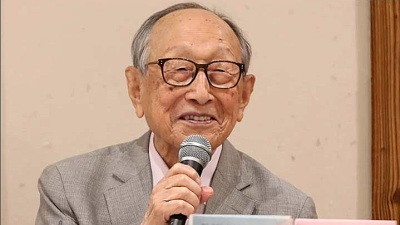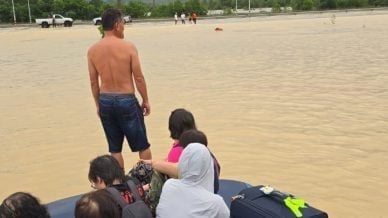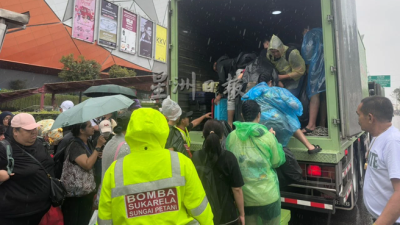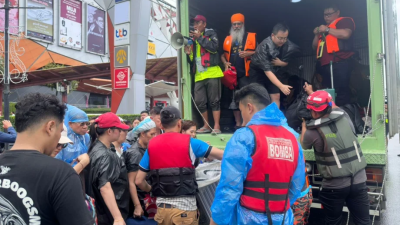
JAKARTA: The Museum of Indonesian World Records (MURI) has recognized Andi Kasri “Akas” Unru, 31, and Muhammad Andika Panji, 33, as the first deaf lawyers to join the country’s judiciary after they swore their oath in June alongside their peers at the Jakarta High Court in Cempaka Putih, Central Jakarta, dressed in black robes, white jabots and black peci (skullcaps).
“There are many issues we must advocate for because many deaf people face the law, whether as victims, perpetrators or witnesses. Yet legal assistance for them remains inadequate,” Panji told The Jakarta Post in late September, with the assistance of sign language interpreter Fajrus.
“As lawyers, our hope is to reduce the stigma against deaf people and [show] that we are capable of defending our own rights,” Andi added.
A door opens
Andi and Panji enrolled in the law school at Jakarta’s Esa Unggul University in 2017 after they received scholarships from Deaf Legal Advocacy Worldwide (D-LAW), an organization of deaf lawyers based in Maryland, the United States.
Their opportunity came just a year after the passage of the 2016 Law on Persons with Disabilities and six years after Indonesia ratified the United Nations Convention on the Rights of Persons with Disabilities (CRPD).
“The rector, Arief Kusuma Among Praja, was aware that the disability law was already in place at that time,” Panji said.
“He believed there should be no discrimination, and eventually admitted us.”
On campus, the two became inseparable allies in their struggle to keep up in class. Since no interpreters were provided, they relied on their notes and speech to text software, though the tool often failed to transcribe lectures accurately.
They later urged D-LAW to provide interpreters, but many struggled with legal terminology.
“There were words we didn’t understand, the diction made us think, what does this really mean? So we decided to replace the sign language interpreters with [stenographers],” Andi recalled.
After graduation, they had to complete the mandatory special course for legal professionals, pass the bar examination and complete a two-year apprenticeship before they could enter formal practice.
But their path was far from easy. Some bar associations rejected their applications outright, unprepared to accommodate deaf members.
Eventually, they found acceptance through the Indonesian Advocates Association Joint House of Advocates (Peradi RBA), led by University of Indonesia (UI) law lecturer Luhut MP Pangaribuan, and the Center for Continuing Legal Education at UI, where they completed their professional requirements.
Lost in translation
During their internship, Andi and Panji provided support for deaf clients as victims, suspects and witnesses, and discovered that most legal processes failed to provide qualified interpreters.
Panji warned that this could lead to a distortion of justice.
“Sometimes the police report is written based on assumptions, not actual events. Hearing the people preparing the report, many think, ‘Well, this is probably what they meant,” he said.
One client he handled was a deaf minor who was accompanied not by a professional interpreter, but by a special needs teacher.
Andi emphasized that such teachers lacked the legal ethics and linguistic precision required of legal interpreters.
“Police often call special needs teachers instead of interpreters,” he said, noting that schools used the Indonesian Sign Language System (SIBI), which was different from Indonesian Sign Language (Bisindo), the primary language of the deaf community.
“Bisindo is our native language, but the government still insists on [using] SIBI,” Andi added.
A glaring example of this mismatch surfaced last year during a West Java Police press conference on the high-profile case of Vina’s murder, when an interpreter failed to provide accurate translations of police statements.
Accessibility issues also extend to courtrooms. Panji recalled one hearing where a judge refused to let the interpreter stand beside the bench, insisting they face the judicial panel instead.
“What’s the point of having an interpreter if the deaf person cannot even see their hand movements?” he said.
Similar barriers occur in online hearings and news broadcasts, which show interpreters in tiny, cropped boxes. Ideally, Panji said, interpreters should appear beside the speaker and be visible to the waist.
Breaking through walls
Both Panji and Andi faced years of rejection and unequal treatment.
Panji, who previously studied information technology and economics, said his job applications to potential employers were dismissed outright.
“I was rejected even before being tested,” he said.
Panji eventually ended up in blue-collar jobs from cashiering to cutting poultry, and even during his internship at a legal aid office, he was first tasked with photocopying and other office errands before he insisted on doing advocacy work.
Andi, who earned a mechanical engineering diploma before pursuing law, faced similar discrimination.
“Many people refused to hire me, worried about miscommunication and unsure how to work with me,” he said.
Desperate, he sent dozens of job applications and even contacted owners of law firms through social media and email, including Alldo Fellix Januardy, a former human rights lawyer and cofounder of Avya Law Firm.
After an AI-assisted interview, Alldo hired him as an intern for six months, and then promoted him to associate.
“I didn’t hire Andi as a symbolic gesture,” said Alldo, 34.
“We share a belief in equality and in using law to serve the public. From my firsthand experience, Andi has the same, if not greater, potential than his nondisabled peers.”
As an associate lawyer, Andi handles corporate labor and business litigation today. He also leads Avya’s pro bono division and mentors interns.
Panji’s career took a slightly different course: He cofounded the Indonesia Deaf-Hard of Hearing Law & Advocacy (IDHOLA) with Andi.
IDHOLA focuses on providing legal aid and advocating for sign language access in courts. It is also pushing for a regulation under the 2016 Disability Law to subsidize living costs for people with disabilities.
According to Statistics Indonesia (BPS), the country has more than 255,000 deaf people and another 668,000 with hearing loss, but only two deaf lawyers.
A louder future
Panji said the lack of representation underscored the urgency of opening more paths for deaf people in the judiciary.
“In the United States, there are over 400 deaf lawyers,” he said.
“If they can do it, why can’t we? We just need equal opportunities.”
As Indonesia’s first deaf lawyers, Andi and Panji have not only made history but are also continuing to pave the way toward a more inclusive, fair and equal justice system.
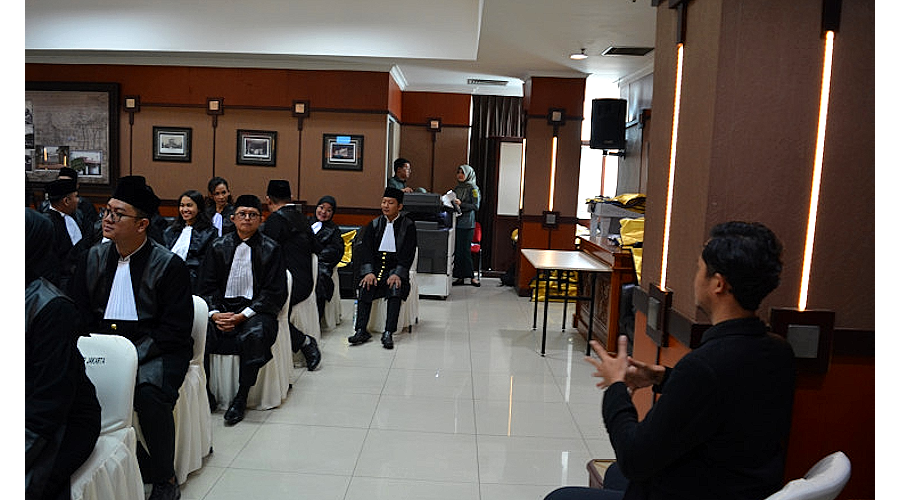
ADVERTISEMENT
ADVERTISEMENT









